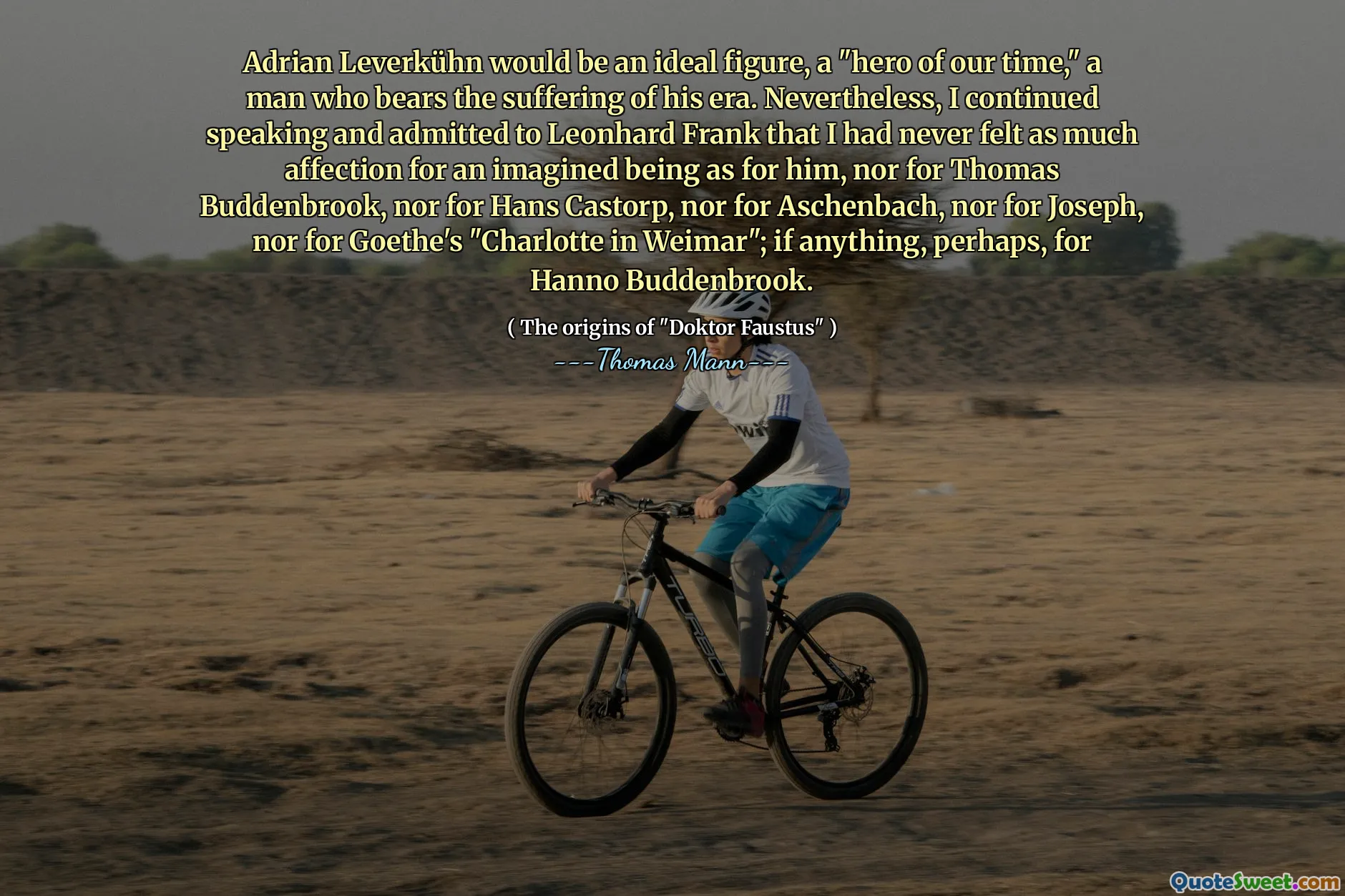
Adrian Leverkühn would be an ideal figure, a "hero of our time," a man who bears the suffering of his era. Nevertheless, I continued speaking and admitted to Leonhard Frank that I had never felt as much affection for an imagined being as for him, nor for Thomas Buddenbrook, nor for Hans Castorp, nor for Aschenbach, nor for Joseph, nor for Goethe's "Charlotte in Weimar"; if anything, perhaps, for Hanno Buddenbrook.
This quote from Thomas Mann's reflections on the origins of "Doktor Faustus" delves deep into the complex relationship between the reader (or creator) and the characters that populate literary worlds. The notion of Adrian Leverkühn as a "hero of our time," embodying the weight and anguish of an entire era, captures the essence of literature as a mirror to societal and historical suffering. What resonates here profoundly is the admission of a unique affection for characters — imagined beings who, though fictional, evoke genuine emotional attachment and empathy. Mann's naming of various characters alongside Leverkühn illustrates the spectrum of literary figures who embody, each in their own way, personal and collective human struggles.
This passage invites us to reflect on how literature transcends mere storytelling; it touches the human condition by generating connections that feel almost tangible. Characters become vessels of universal truths and personal sorrow, bearing the burdens of their times while influencing the consciousness of their creators and readers alike. Mann's preference, nearly equating these fictional figures to real individuals due to the depth of feeling they inspire, celebrates the transformative power of literature. The empathy for Adrian Leverkühn stands as a testament to the complexity of human experience and the way art encapsulates such depth. It is a poignant acknowledgment of the enduring bond between the living world and the imagined, where suffering, heroism, and identity intersect.






